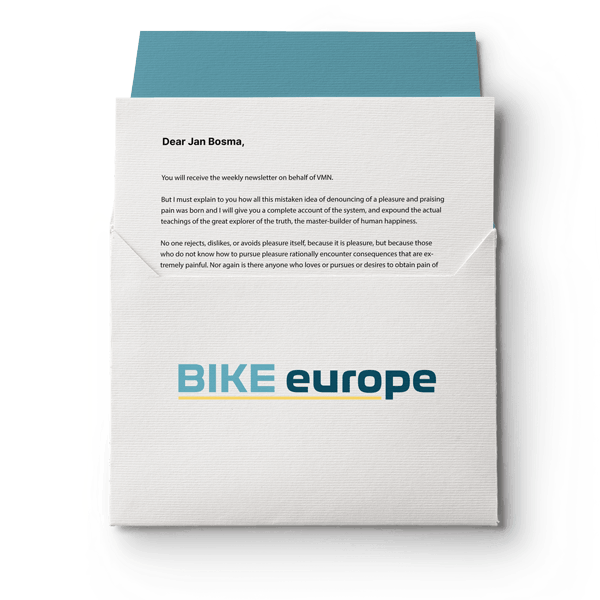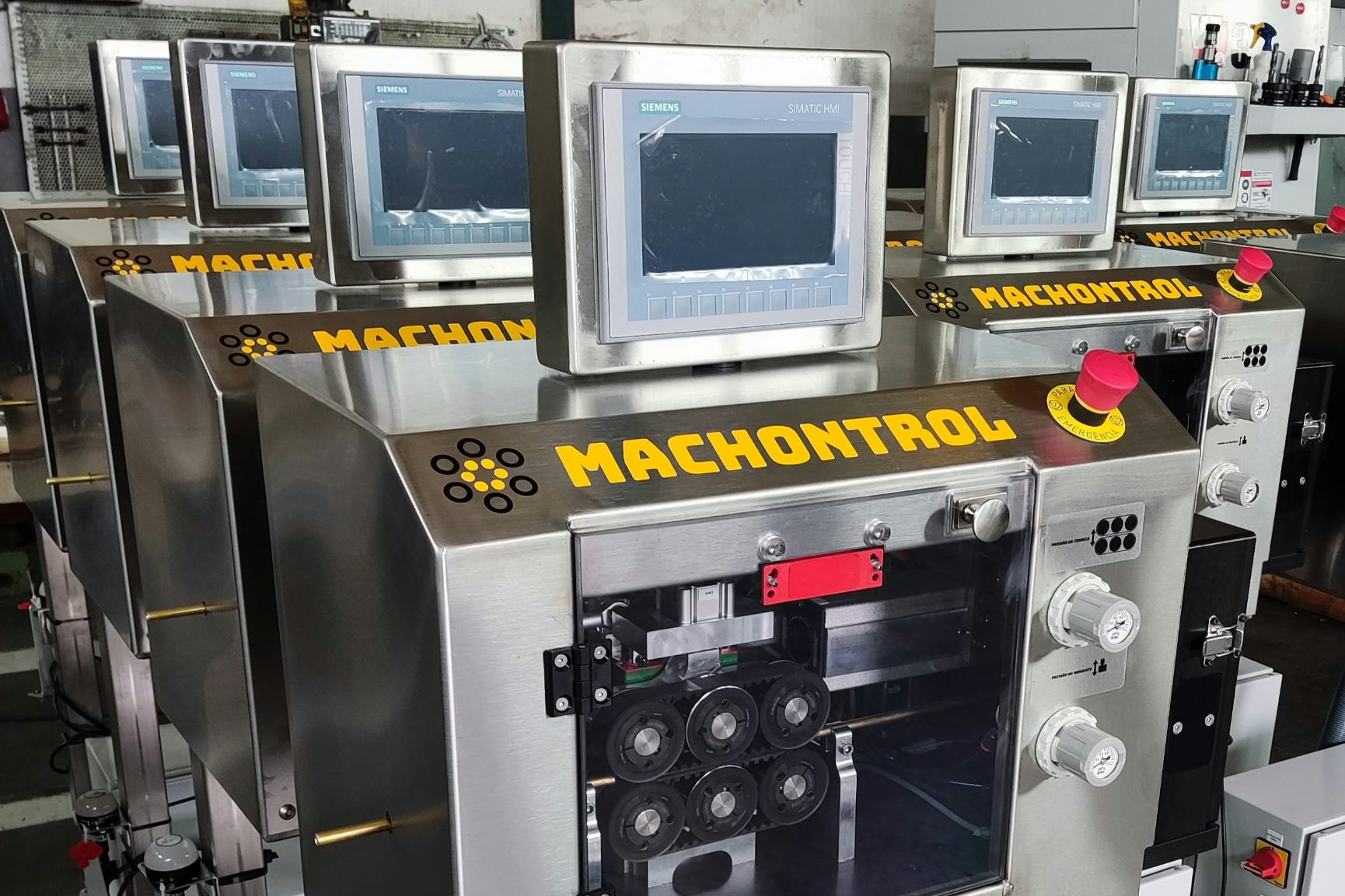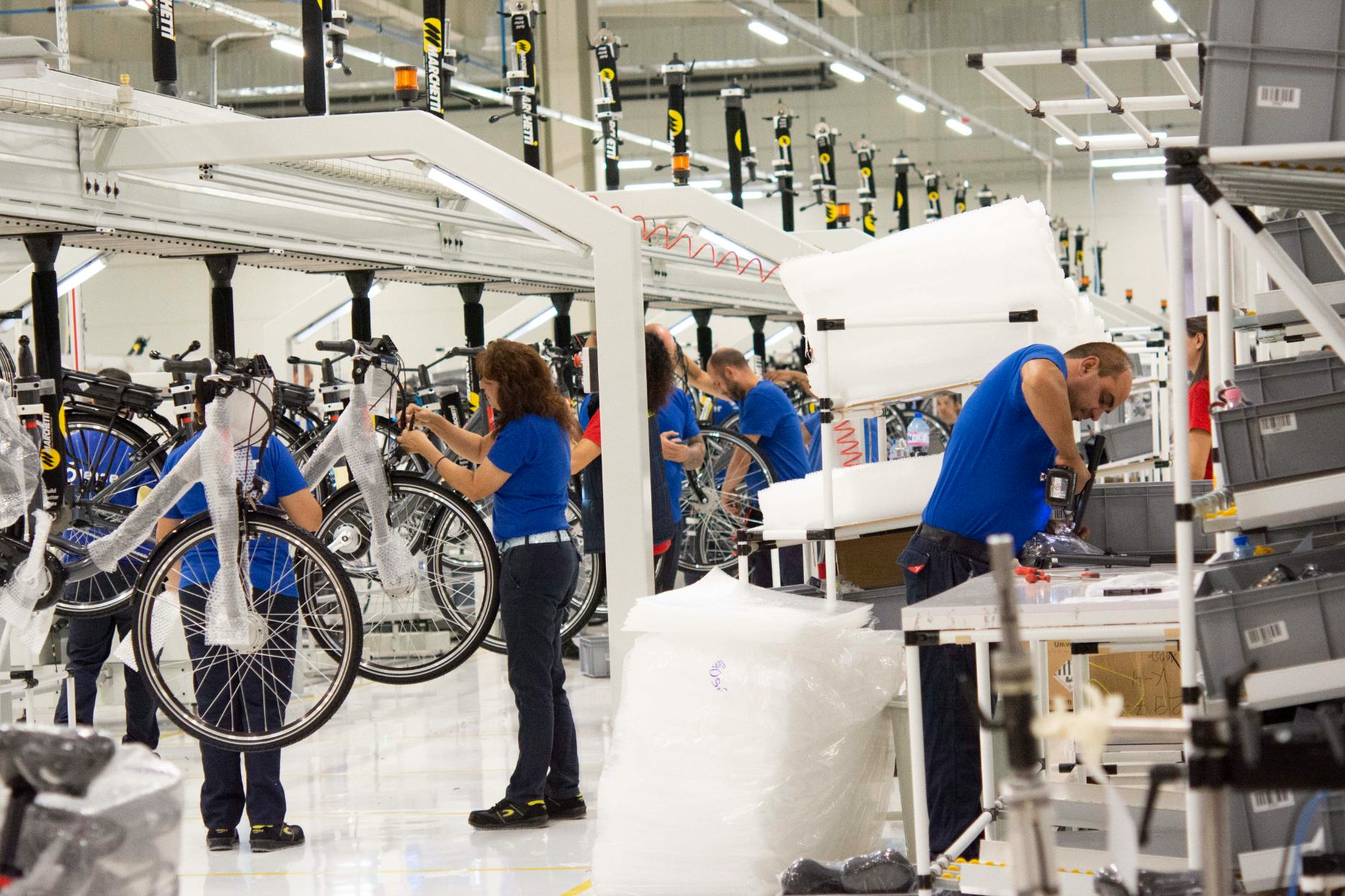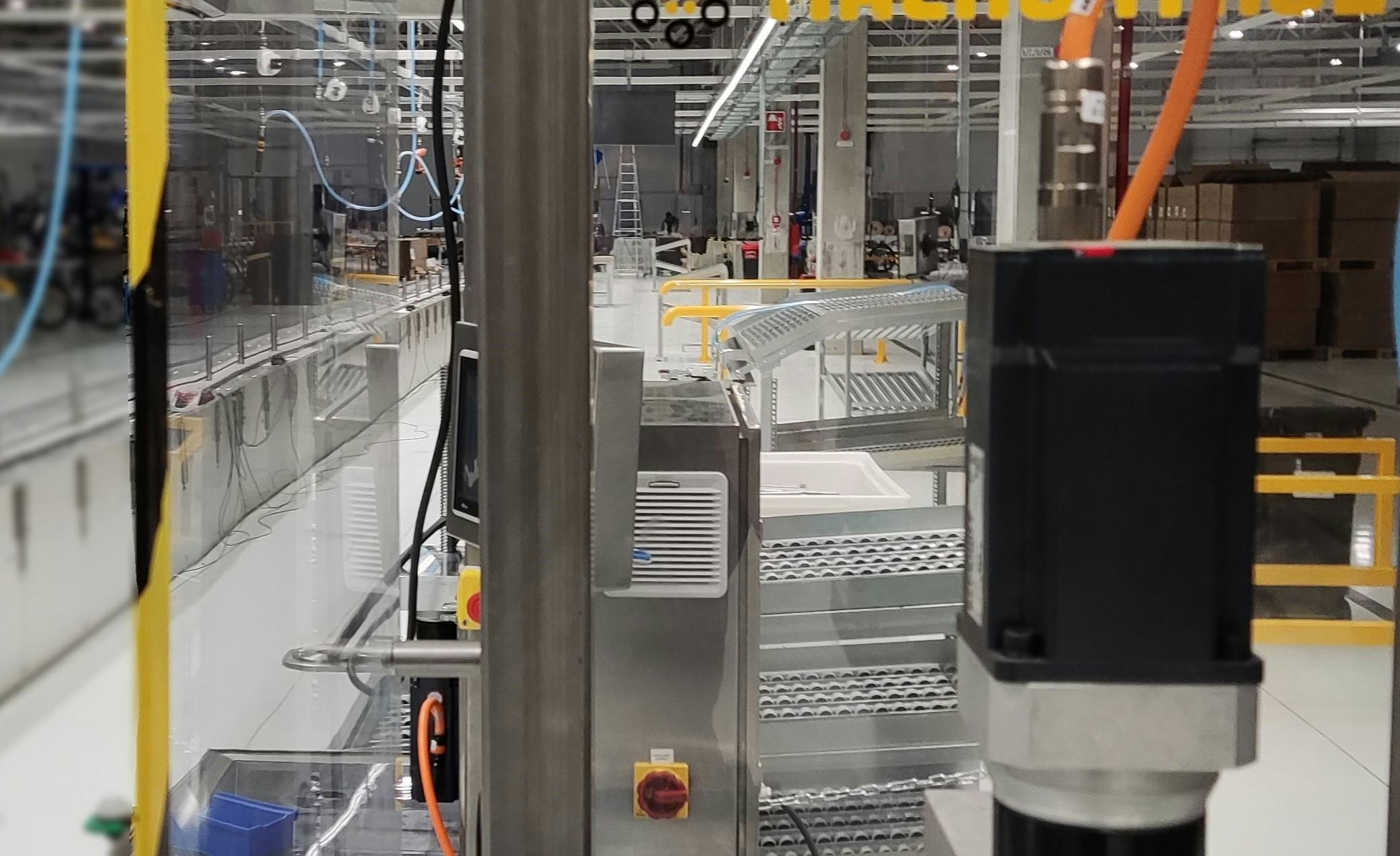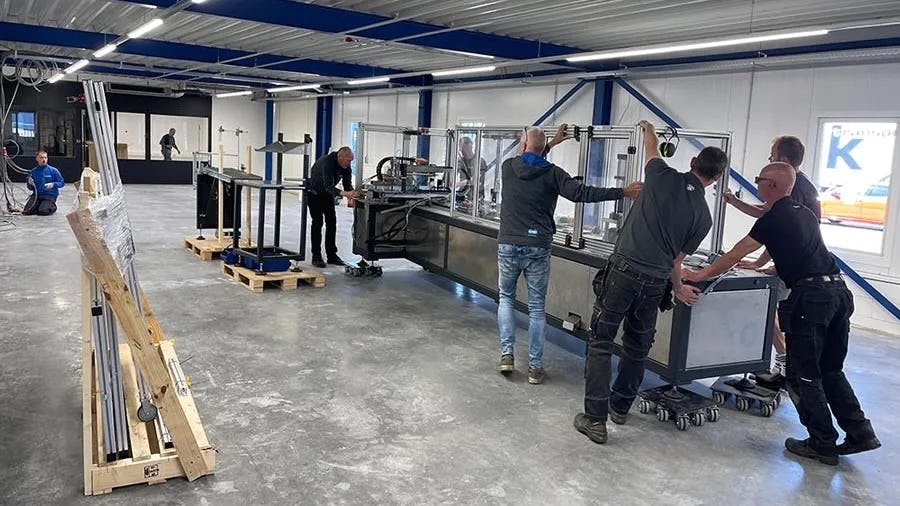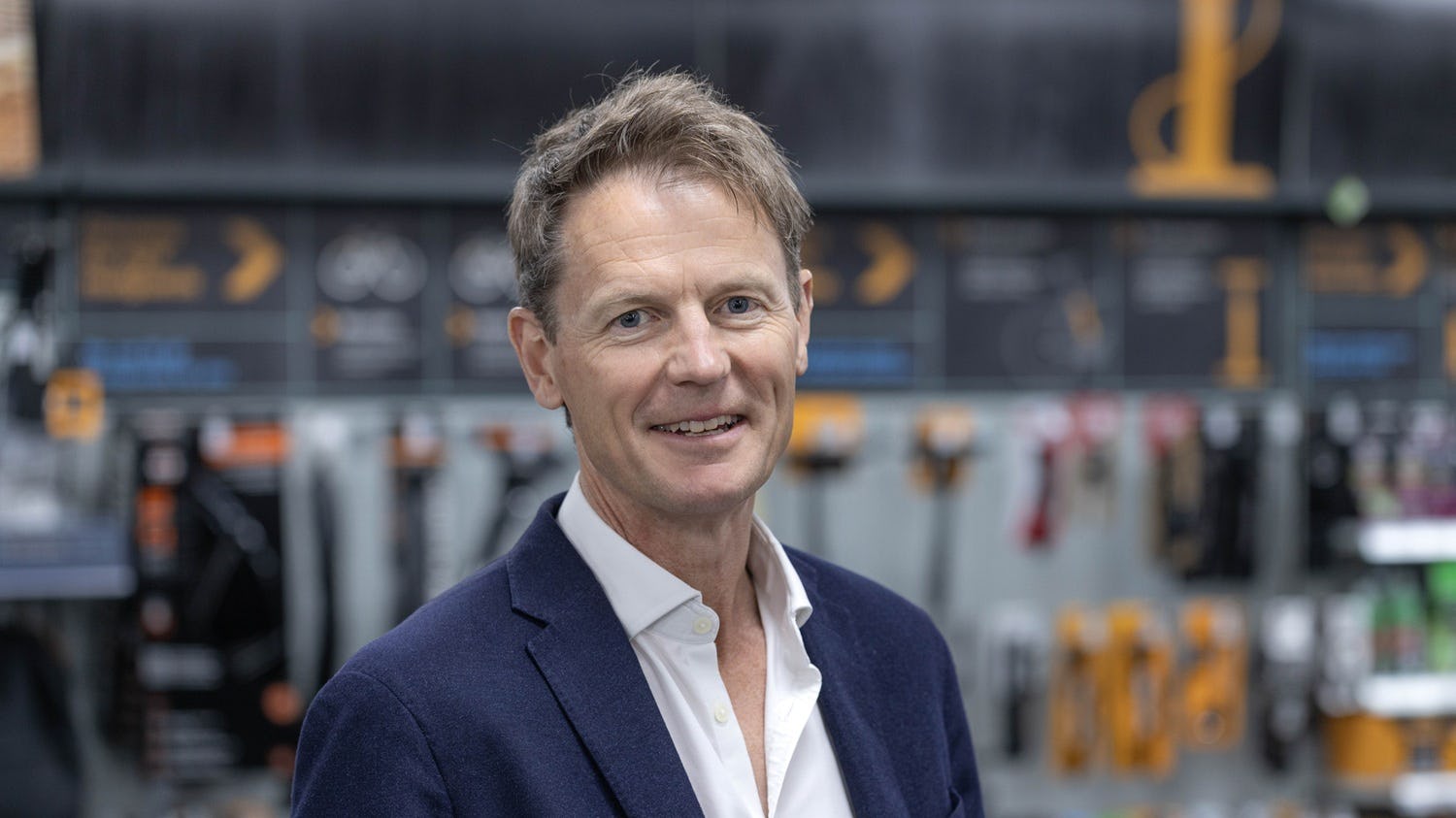From labour shortages to production bottlenecks – the outbreak of the coronavirus pandemic in 2020, its consequences and the war in Ukraine have far-reaching economic consequences worldwide. Especially, the supply chains have been affected by the continuing instability of the global situation. Several studies across different industries show how enormous the challenges for companies are these days.
Just recently, the Global Supply Chain Pressure Index (GSCPI), an analysis published by the Federal Reserve Bank of New York, reached an all-time peak since its start in 1997. Looking at such data, it is no surprise that functional logistics have now evolved from a cost factor to a real competitive advantage for companies. A development that has also reached the bicycle industry with its complex and vulnerable supply chains.
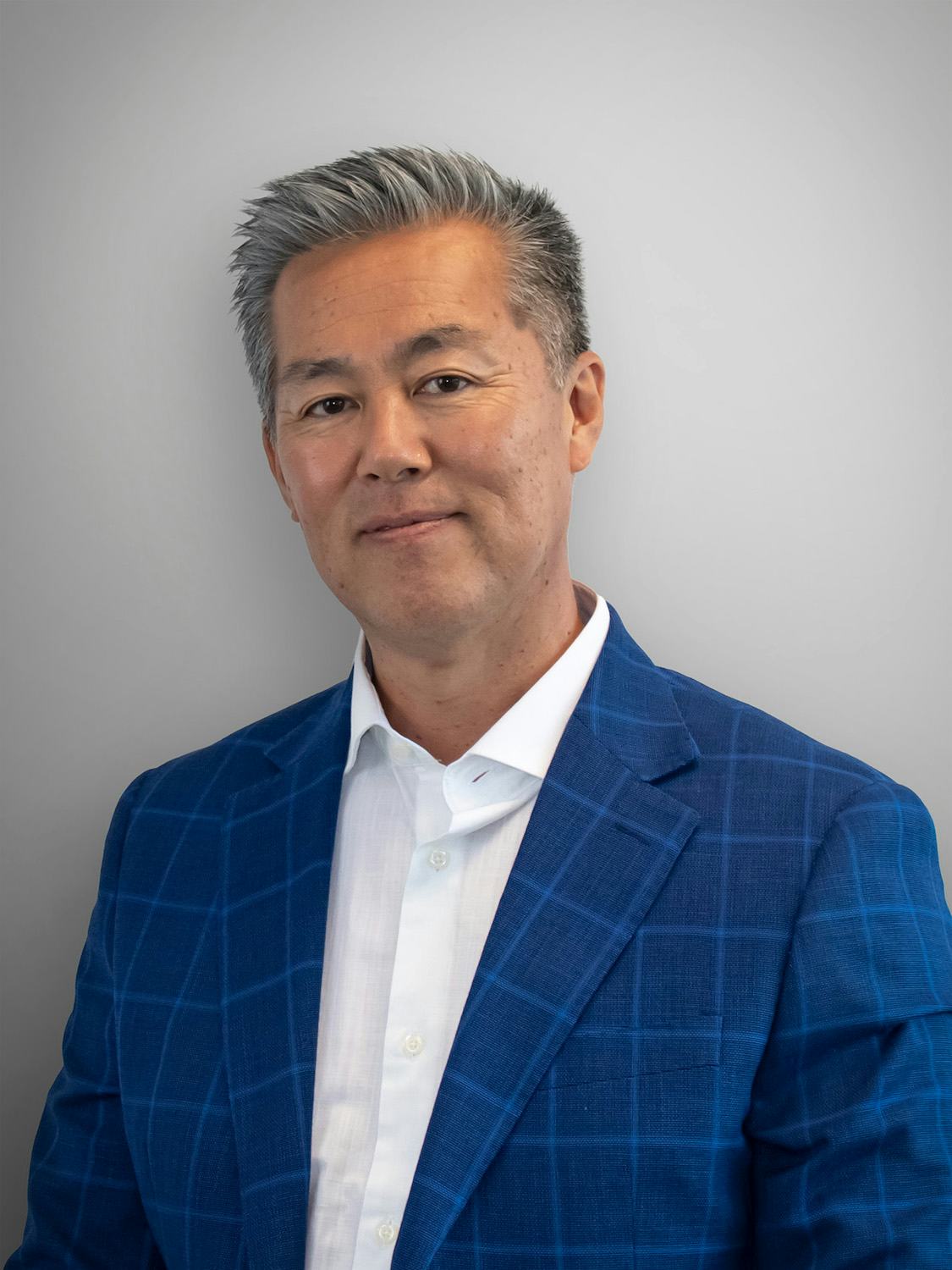
"While offshoring has been the way to go for big parts of the industry for many years, the current global situation makes decision-makers think of moving their production closer to their main markets," Kim Madsen explains. The Chief Sales Marketing Officer of the German company Akku Vision, a leading e-bike battery developer and producer, speaks out of his experience.
While the general production of e-bike batteries has historically been taking place mainly in Asia, the company from Haibach has recently seen a substantial increase in demand from manufacturers around the globe. "One reason is that we've focused strongly on OEM production since 2020. Another is the increasing trend of nearshoring. Shorter lead times and high-quality standards are good arguments for bicycle brands to source their components more locally," Madsen says.
Advanced engineering and high internal standards
Founded in 2011, Akku Vision initially focused on supplying the aftermarket with replacement batteries for e-bikes. Additionally, after a rebranding in 2020, the company expanded its business to supplying batteries to OEM drive and e-bike manufacturers.
Our success shows that battery production in the heart of Europe is more relevant than ever”
"Our strategy is vertical, from developing hardware and software to inhouse cell-testing to battery management system assembly to the final testing of the battery packs before their shipment to the customer," Madsen says. He also points out that the German company has established itself as one of the market leaders in its field over the last years. "Our success shows that battery production in the heart of Europe is more relevant than ever. The current economic conditions put many companies on a strain when it comes to securing their business. Therefore, one of the measures is to source parts and components from European suppliers to be able to deliver complete e-bikes to the market."
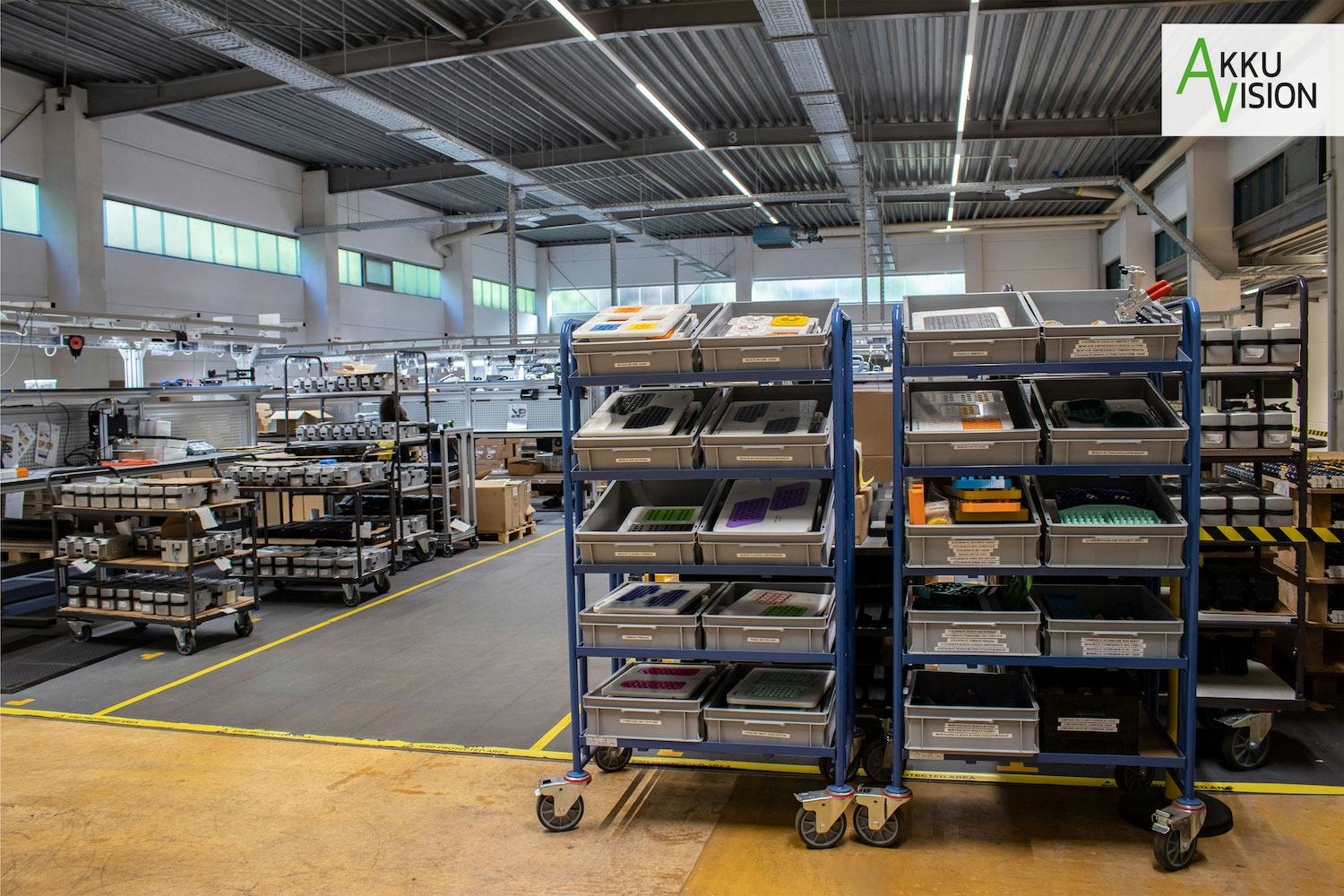
For OEM partners, Akku Vision offers specific customised solutions as well as 'off the shelve' battery packs. "We successfully introduced our Bespoke Battery Concept with intube batteries and our innovative cargo bike battery pack Fusione to selected OEM customers at Eurobike show in July," Madsen reports.
The Bespoke Battery Concept battery packs are offered with various capacities, ranging from 360 Wh to 844 Wh as 36 V versions and 504 Wh to 886 Wh in their 48 V variants. The Fusione cargo battery is offered with 1.6 kWh capacity in 36 V. "Both BBC and Fusione can be multi-stacked for even more capacities and are compatible to most market requested drive units and communicate through CAN, UART/USART and One wire serial. Unique with Fusione is that it smart detects which drive unit is built into the cargo bike," Madsen explains.
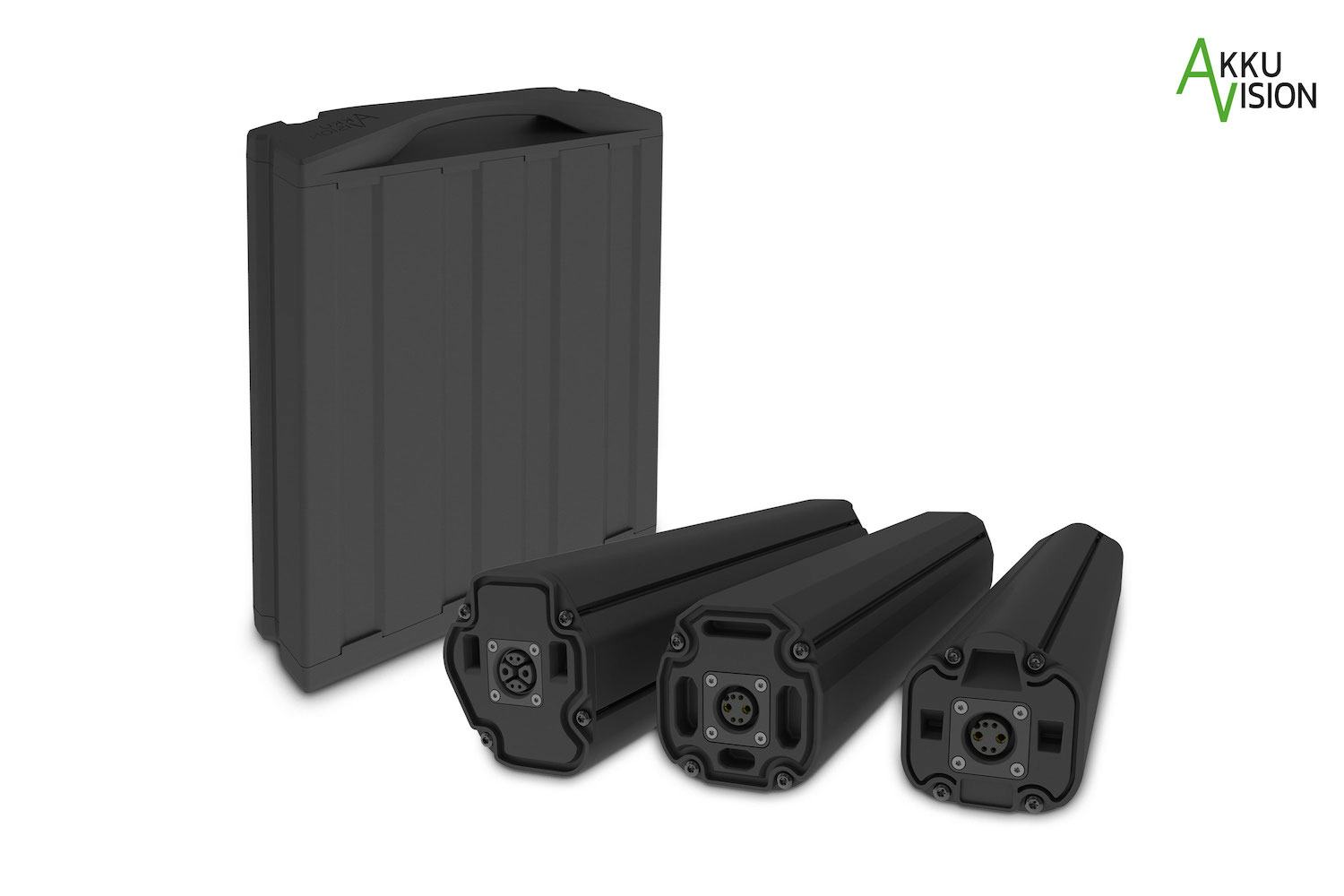
Successful collaboration with Revonte
Individual and bespoke solutions for their partners – an example of how nearshoring in the field of e-bike batteries can successfully work is the collaboration between Akku Vision and the Finnish drive system producer Revonte.
"Already quite early in the design phase, it became clear that batteries available in the market were not sufficient for our power needs, so we had to build our own battery," Revonte-CEO Otto Chrons says. In this context, his company wanted to work with a European supplier from the beginning. "We wanted a supplier that had a history of designing and manufacturing high-quality batteries and who would be able to work with us in a highly flexible co-development mode. Akku Vision impressed us with their ability to build batteries for many different drive units and having their production in Germany", he explains as to why Revonte chose to work with the German battery producer.

It is a decision that has paid off in the face of the currently stuttering global supply chains. "Now that more and more companies are moving their production from Far-East to Europe, it's becoming clear that going for a European partner from the start was the right choice," Chrons says. In this way, he also confirms the experience of Kim Madsen. The Akku Vision CSMO strongly believes that the demand for nearshoring in the e-bike sector will grow further in the upcoming years and also expects substantial growth in volume and revenue for his company. "Sourcing more locally can help e-bike manufacturers to increase the efficiency of their supply chain management – especially in these difficult times."
This article is sponsored by Akku Vision.



